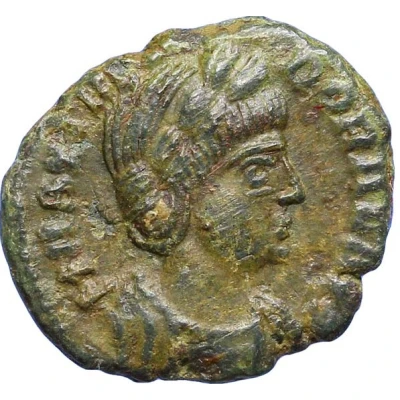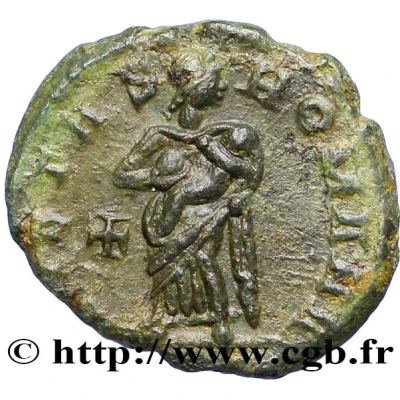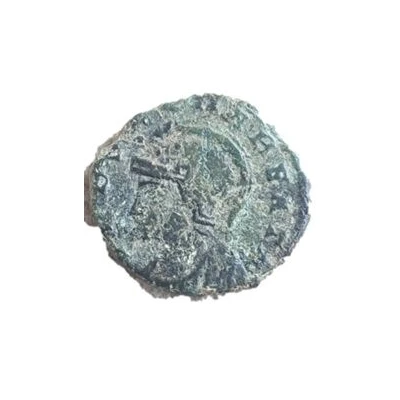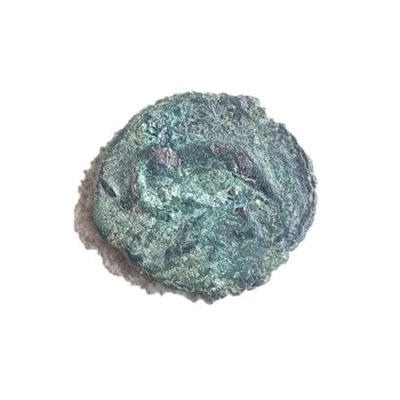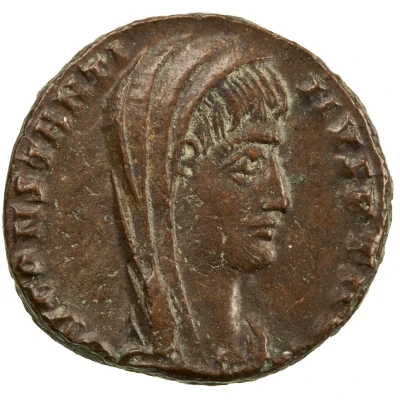
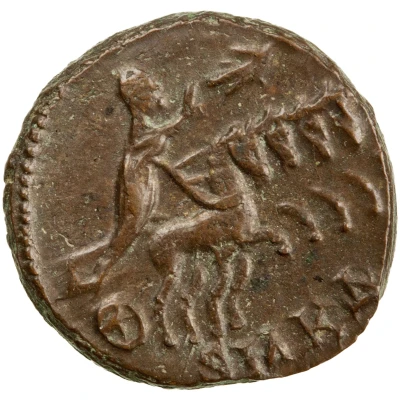

© American Numismatic Society (ANS)
Nummus - Constantinus I DV CONSTANTINVS PT AVGG; Quadriga; Cyzicus
| Bronze | 1.51 g | 14.5 mm |
| Issuer | Rome › Roman Empire (27 BC - 395 AD) |
|---|---|
| Emperor | Constantine I (Flavius Valerius Constantinus) (306-337) |
| Type | Standard circulation coin |
| Years | 337-340 |
| Value | Nummus (1⁄7200) |
| Currency | Solidus, Reform of Constantine (AD 310/324 – 395) |
| Composition | Bronze |
| Weight | 1.51 g |
| Diameter | 14.5 mm |
| Thickness | 0.8 mm |
| Shape | Round (irregular) |
| Technique | Hammered |
| Orientation | Variable alignment ↺ |
| Demonetized | Yes |
| Updated | 2024-10-04 |
| Numista | N#111882 |
|---|---|
| Rarity index | 76% |
Reverse
Constantine veiled, in quadriga galloping right, holding reins in left hand, extending right hand towards the hand of God coming down to welcome him in Heaven.
Mintmark and officina in exergue.
Script: Latin
Edge
Plain
Interesting fact
The Nummus - Constantinus I coin was part of a series of coins issued during the reign of Emperor Constantine I, also known as Constantine the Great, who ruled the Roman Empire from 306 to 337 AD. This coin was specifically issued during the period of 337-340 AD and features an image of a quadriga, or a four-horse chariot, on the reverse side, which was a common motif on coins during this time period. The obverse side features an image of Constantine I with the inscription "DV CONSTANTINVS PT AVGG," which stands for "Dominus Constantinus Pater Augustus," or "Lord Constantine, Father of the Augustus." This coin is made of bronze and weighs 1.51 grams, which was a common weight for coins of this denomination during the Roman Empire. The Nummus - Constantinus I coin is considered a standard circulation coin, which means it was widely used in everyday transactions throughout the empire. Today, this coin is considered a valuable collector's item and is highly sought after by numismatists and historians interested in ancient Roman coins.
